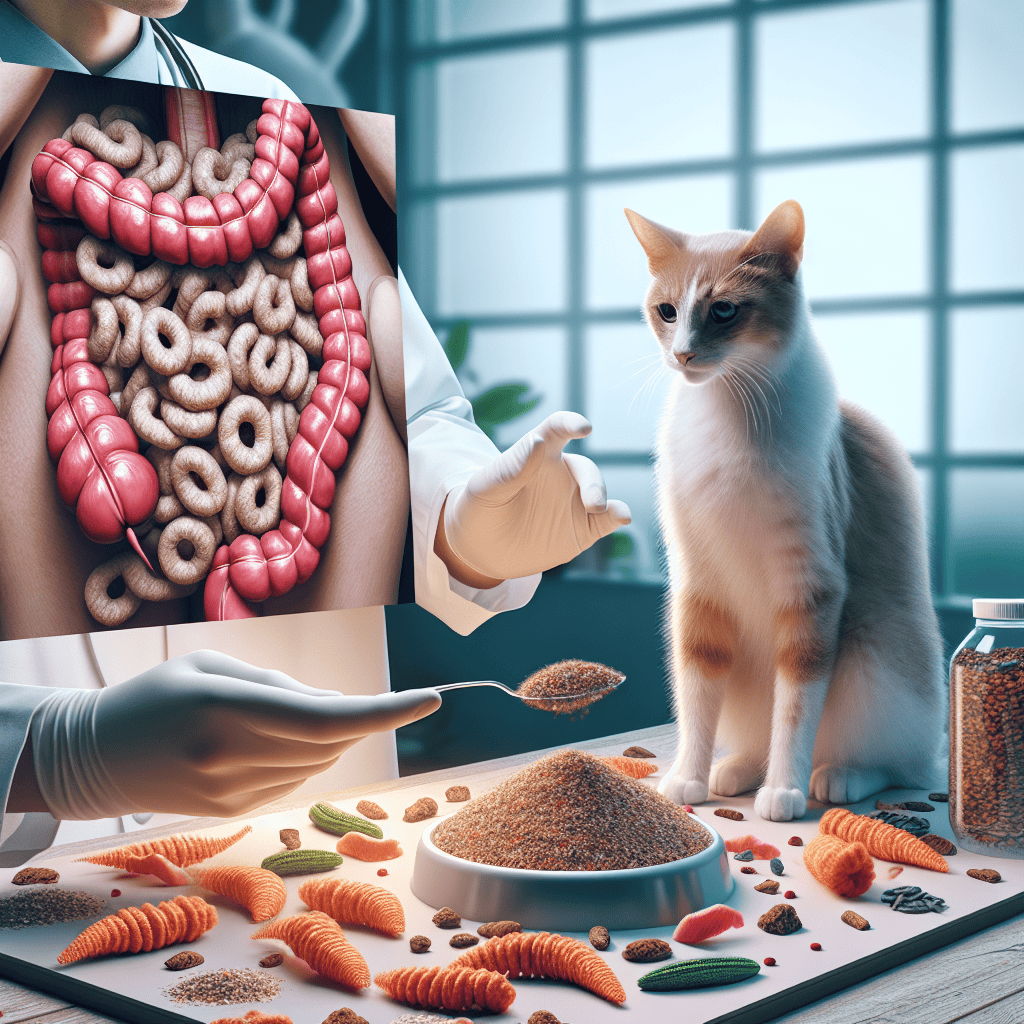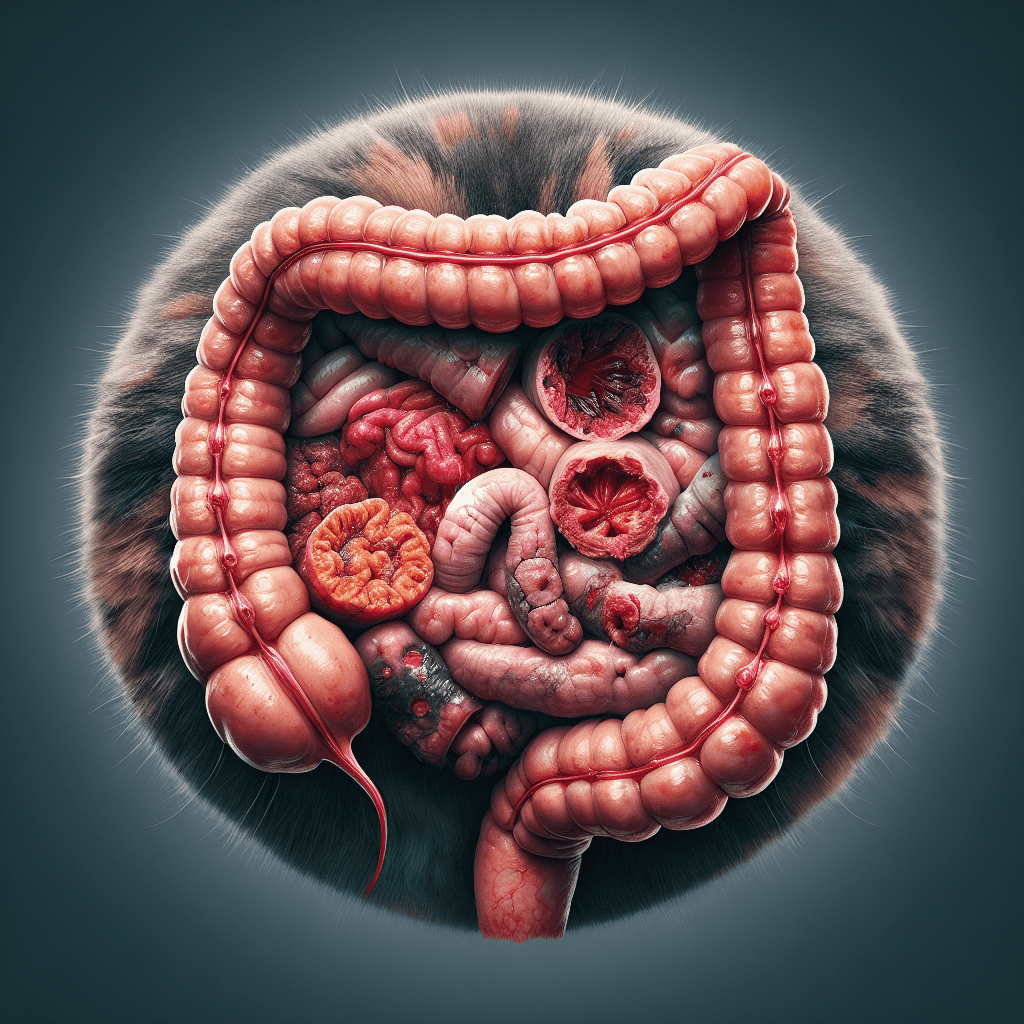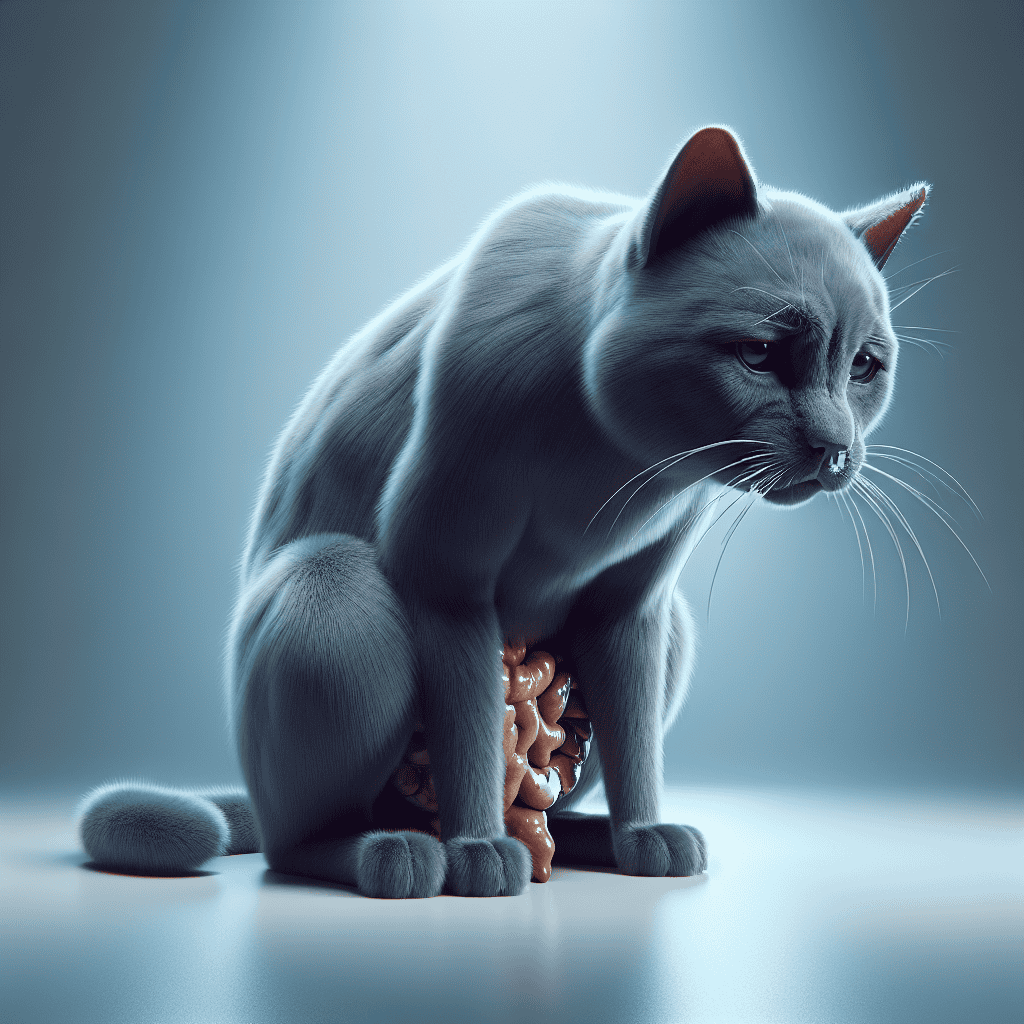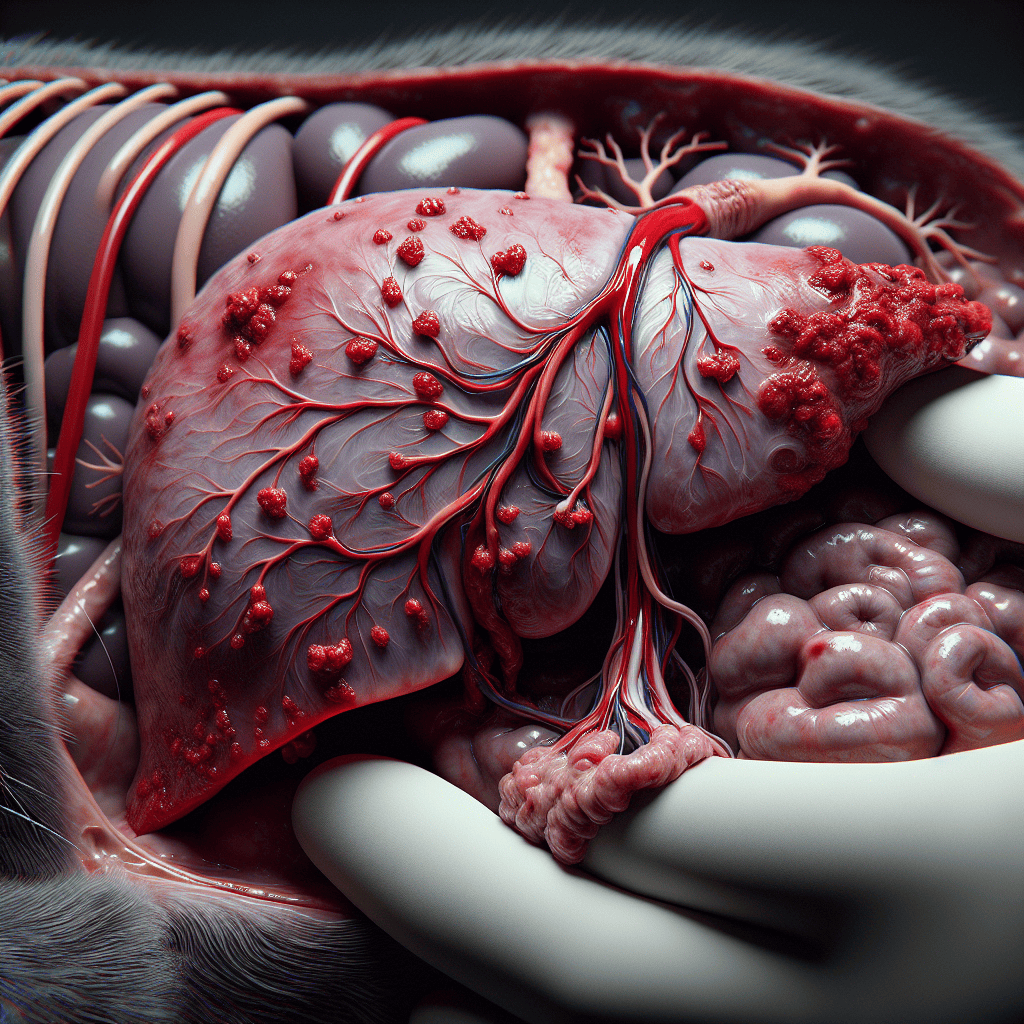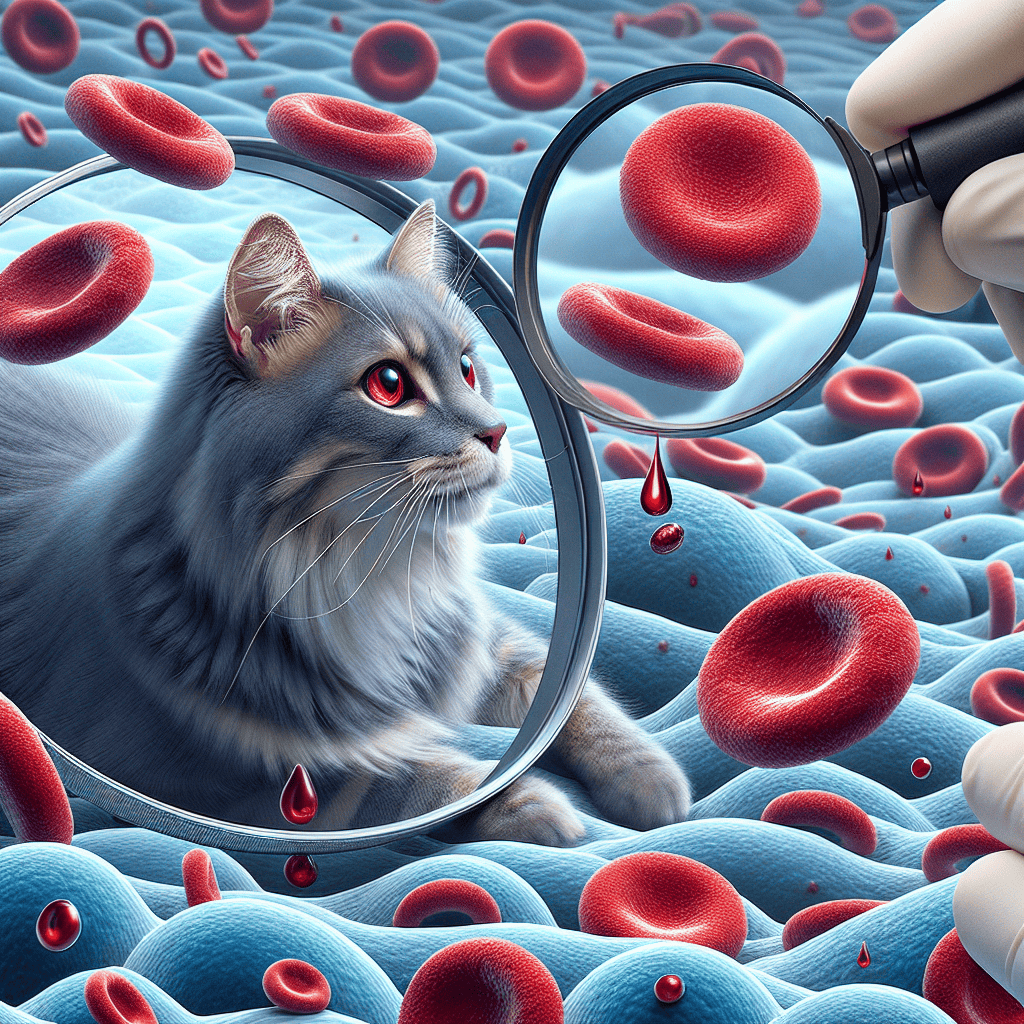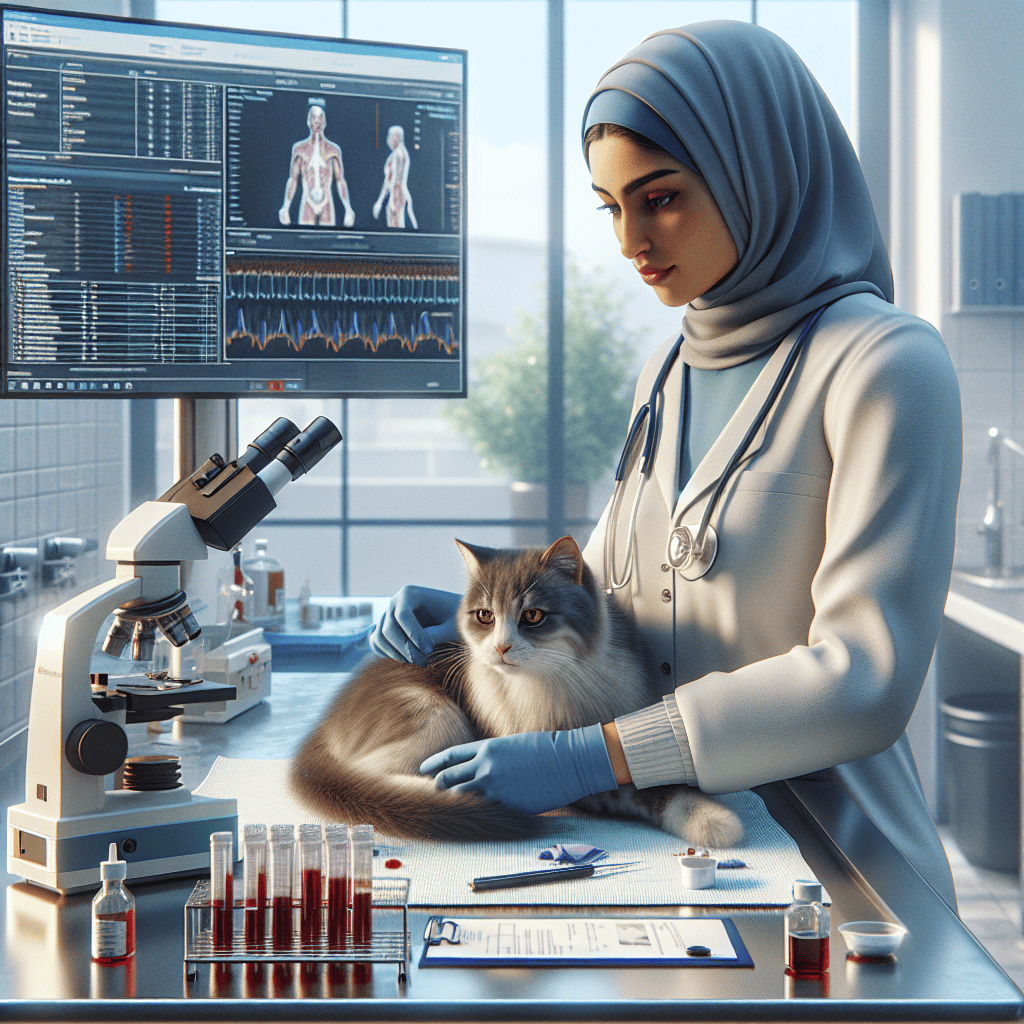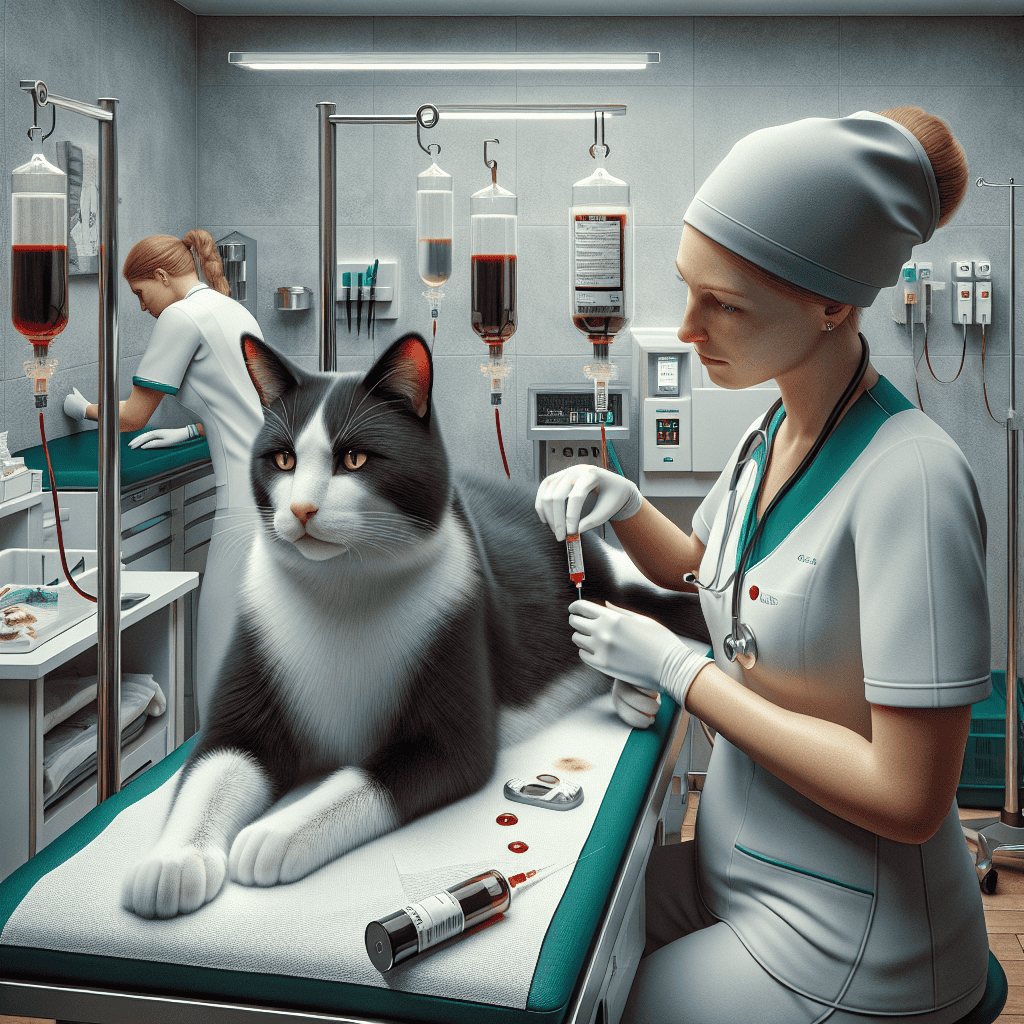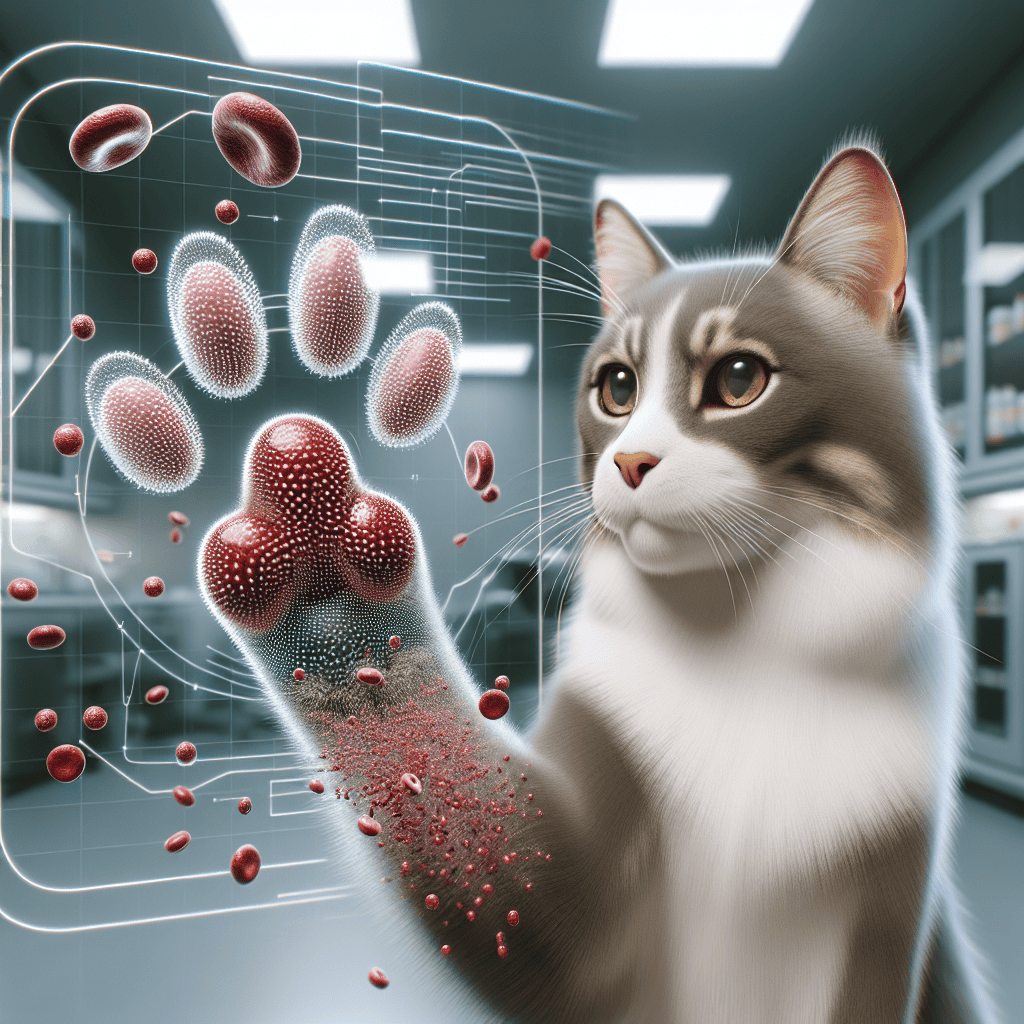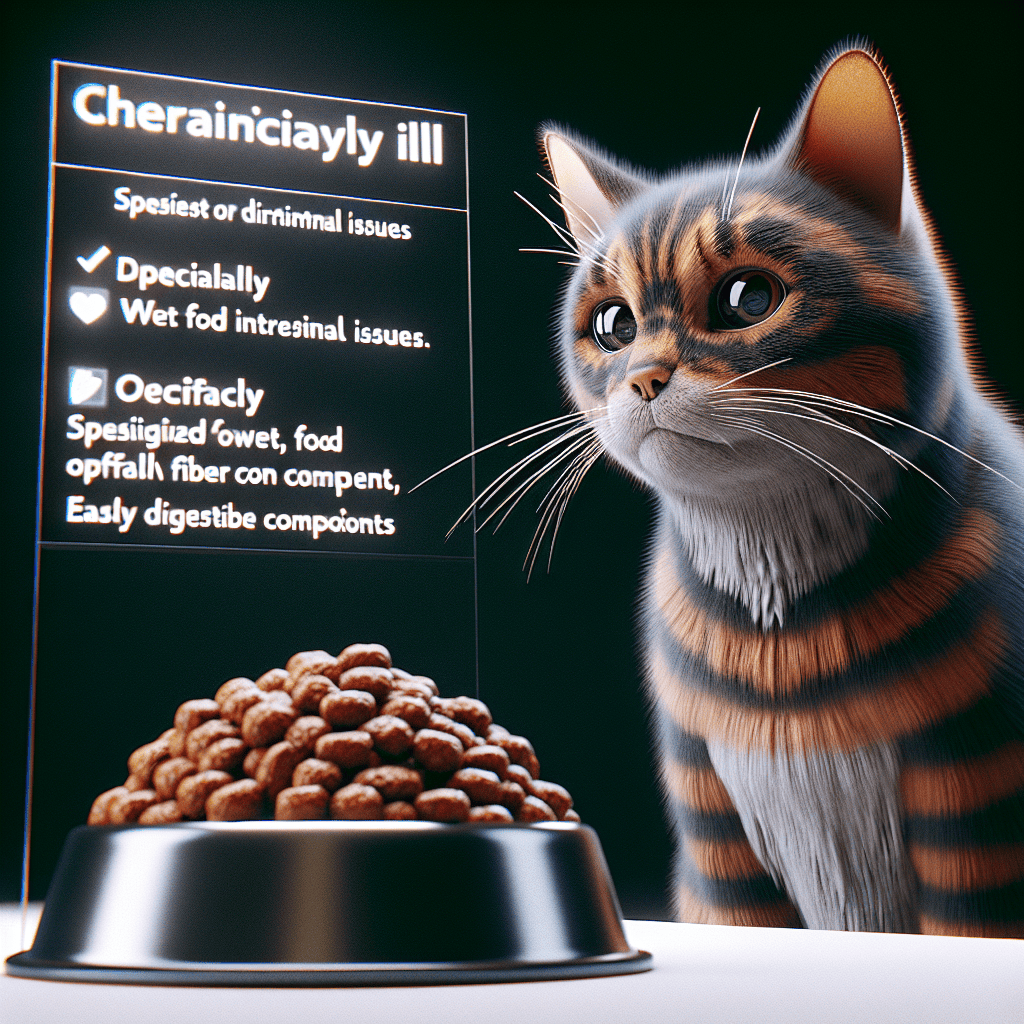Understanding Colonic Ulcers
Colonic ulcers in cats can be a concerning health condition that may require special attention and care. In this section, we will explore what colonic ulcers are and the common causes associated with them.
What are Colonic Ulcers?
Colonic ulcers, also known as colitis or ulcerative colitis, refer to the inflammation and erosion of the colon’s lining in cats. The colon, also called the large intestine, plays a vital role in the digestive process by absorbing water and electrolytes from feces before elimination. When ulcers develop in the colon, it can disrupt the normal functioning of the digestive system and lead to various symptoms.
The exact cause of colonic ulcers in cats is not fully understood. However, they are often associated with underlying gastrointestinal issues, such as inflammatory bowel disease (Source A). These ulcers can range in severity, from small erosions to larger, more significant lesions. If left untreated, colonic ulcers can cause discomfort and potentially lead to complications.
Causes of Colonic Ulcers
Several factors can contribute to the development of colonic ulcers in cats. Some common causes include:
-
Inflammatory Bowel Disease (IBD): IBD is a chronic condition characterized by inflammation of the gastrointestinal tract. Cats with IBD are more susceptible to developing colonic ulcers (Source B).
-
Dietary Sensitivities or Allergies: Some cats may have sensitivities or allergies to certain ingredients in their food, leading to inflammation of the colon and the formation of ulcers.
-
Infections: Infections, such as bacterial or parasitic infections, can irritate the colon’s lining and contribute to the development of ulcers.
-
Stress: Stressful situations, such as changes in the environment or routine, can affect the digestive system and potentially trigger colonic ulcers (Source C).
-
Medication: Certain medications, such as nonsteroidal anti-inflammatory drugs (NSAIDs), can increase the risk of colonic ulcers in cats.
It’s important to note that colonic ulcers can vary in their causes and severity. Veterinary diagnosis and guidance are crucial to determine the underlying cause and develop an appropriate treatment plan. If you suspect your cat may be experiencing colonic ulcers, it’s important to seek veterinary care for a thorough evaluation.
In the next sections, we will explore the symptoms, diagnosis, treatment options, and dietary adjustments that can aid in managing colonic ulcers in cats. Stay tuned for more information on how to support your cat’s health and well-being.
Symptoms and Diagnosis
Colonic ulcers in cats can be challenging to diagnose as the symptoms may vary and overlap with other gastrointestinal conditions. However, by recognizing the symptoms and seeking veterinary diagnosis, you can ensure timely and appropriate treatment for your furry friend.
Recognizing Symptoms
Symptoms of colonic ulcers in cats may include:
-
Changes in Bowel Movements: Cats with colonic ulcers may experience diarrhea, constipation, or a combination of both. The stool may also contain blood or mucus.
-
Weight Loss: Unexplained weight loss is a common sign of gastrointestinal issues, including colonic ulcers. If your cat is losing weight despite a normal appetite, it’s important to monitor their condition closely.
-
Vomiting: Cats with colonic ulcers may experience intermittent or chronic vomiting. The presence of blood in the vomit is a concerning sign that warrants immediate veterinary attention.
-
Straining or Pain during Defecation: Cats may exhibit signs of discomfort or pain while using the litter box. They may vocalize, have difficulty passing stool, or display signs of discomfort during defecation.
-
Changes in Appetite: Cats with colonic ulcers may show a decreased appetite or become picky eaters. This can lead to weight loss if left untreated.
If you notice any of these symptoms in your cat, it is essential to consult with your veterinarian for a proper diagnosis and treatment plan. For more detailed information on the symptoms of colonic ulcers in cats, refer to our article on colonic ulcer in cats symptoms.
Veterinary Diagnosis
A thorough veterinary examination is crucial to diagnose colonic ulcers in cats. Your veterinarian will consider the cat’s medical history, conduct a physical examination, and may recommend further diagnostic tests, including:
-
Blood Tests: Blood tests can provide valuable information about your cat’s overall health, including any abnormalities that may indicate gastrointestinal issues.
-
Fecal Analysis: Analyzing a stool sample can help identify any underlying infections, parasites, or other gastrointestinal issues that may be contributing to the colonic ulcers.
-
Imaging Studies: In some cases, X-rays or ultrasound may be recommended to visualize the cat’s gastrointestinal tract and assess the extent of the ulceration.
-
Endoscopy: Endoscopy involves using a flexible tube with a camera to examine the colon and obtain biopsies for further evaluation. This procedure is typically performed under sedation or anesthesia.
-
Colonic Ulcer Biopsy: Biopsies may be taken during endoscopy or obtained through surgical procedures, such as colonic ulcer surgery in cats. These biopsies are sent to a laboratory for analysis to confirm the presence of colonic ulcers.
By conducting a thorough examination and utilizing appropriate diagnostic tools, veterinarians can accurately diagnose colonic ulcers in cats. It is important to consult with a veterinarian to determine the best course of action for your cat’s specific condition. For more information on preventive measures, treatment options, and complications associated with colonic ulcers in cats, refer to our other articles on colonic ulcer prevention in cats and colonic ulcer complications in cats.
Treatment Options
When it comes to managing colonic ulcers in cats, there are various treatment options available. These options include medical treatments and dietary adjustments.
Medical Treatments
Medical treatments play a crucial role in the management of colonic ulcers in cats. The specific medical treatment plan will depend on the severity of the ulcer and the underlying cause. Your veterinarian may prescribe medications to address the root cause of the ulcer, reduce inflammation, and promote healing.
Commonly prescribed medications for colonic ulcers in cats may include:
- Antibiotics: If the ulcer is caused by an infection, antibiotics may be prescribed to target and eliminate the infection.
- Proton pump inhibitors: These medications help reduce the production of stomach acid, which can contribute to the development and worsening of ulcers.
- Pain medications: In some cases, pain medications may be prescribed to alleviate discomfort and improve your cat’s overall well-being.
It’s important to closely follow your veterinarian’s instructions regarding the administration of medications and to attend any recommended follow-up appointments. In severe cases, surgery may be required, but it is typically considered a last resort (colonic ulcer surgery in cats).
Dietary Adjustments
Dietary adjustments are an essential component of managing colonic ulcers in cats. A carefully tailored diet can help alleviate symptoms, promote healing, and prevent further irritation to the colon.
The key goals of a colonic ulcer diet for cats are:
- Soft and easily digestible: The diet should consist of easily digestible foods that do not put additional strain on the digestive system.
- Low in fat and fiber: Foods that are low in fat and fiber can help reduce irritation and inflammation in the colon.
- Hypoallergenic: Cats with colonic ulcers may have underlying food allergies or sensitivities, so a hypoallergenic diet may be recommended to minimize potential triggers.
Consult with your veterinarian to determine the most appropriate dietary adjustments for your cat. They may recommend prescription diets formulated specifically for cats with gastrointestinal issues. These diets are typically designed to provide the necessary nutrients while being gentle on the digestive system.
It’s important to transition your cat’s diet gradually to minimize any potential digestive upset. Monitor your cat’s response to the new diet and provide regular updates to your veterinarian. They may recommend additional dietary modifications based on your cat’s progress.
By combining medical treatments with dietary adjustments, you can effectively manage colonic ulcers in your cat. Regular communication and follow-up with your veterinarian are essential to monitor your cat’s progress and make any necessary adjustments to the treatment plan. For information on preventing colonic ulcers in cats, consider reading our article on colonic ulcer prevention in cats.
Colonic Ulcer Diet
When it comes to managing colonic ulcers in cats, diet plays a crucial role in promoting healing and preventing further complications. A well-planned colonic ulcer diet can help alleviate symptoms and support the overall health of your feline companion.
Importance of Diet
A carefully selected diet is essential for cats with colonic ulcers. The right food choices can help reduce inflammation, provide necessary nutrients, and support the healing process. A colonic ulcer diet aims to minimize irritation to the gastrointestinal tract while ensuring optimal nutrition.
Dietary adjustments can significantly impact the healing of colonic ulcers in cats (source B). It is important to consult with your veterinarian to develop a tailored diet plan that meets your cat’s specific needs.
Recommended Foods
When it comes to selecting foods for cats with colonic ulcers, it is essential to focus on easily digestible, high-quality ingredients that are gentle on the gastrointestinal system. The following are some recommended foods that can be included in a colonic ulcer diet for cats (source C):
-
Lean Protein: Provide your cat with lean sources of protein such as boiled chicken, turkey, or fish. These protein sources are easily digestible and can help support muscle repair and growth.
-
Low-Fiber Carbohydrates: Opt for easily digestible carbohydrates such as white rice or boiled sweet potatoes. These ingredients are gentle on the digestive system and provide a source of energy.
-
Digestive Supplements: Your veterinarian may recommend the inclusion of digestive supplements such as probiotics or digestive enzymes. These supplements can help promote a healthy gut environment and aid in digestion.
-
Moist Food: Feeding moist or wet food can help increase hydration and promote softer stools, reducing strain on the colon.
It is important to note that every cat is unique, and their dietary needs may vary. Your veterinarian will consider your cat’s specific condition, overall health, and nutritional requirements when recommending the most suitable diet.
By following a colonic ulcer diet that focuses on easily digestible, high-quality ingredients, you can help support your cat’s healing process and overall well-being. Regular monitoring, follow-up appointments, and open communication with your veterinarian will ensure that the diet is providing the necessary support for your cat’s colonic ulcer treatment (source E).
Preventive Measures
When it comes to managing colonic ulcers in cats, preventive measures play a crucial role in minimizing the risk of recurrence and promoting overall gastrointestinal health. Two key aspects of preventive care include lifestyle changes and regular monitoring and follow-up.
Lifestyle Changes
Implementing lifestyle changes can significantly contribute to preventing colonic ulcers in cats. Here are some recommendations:
-
Dietary Modifications: Provide a balanced and easily digestible diet for your cat. Consult with your veterinarian to determine the most suitable diet for your cat’s specific needs. Avoid feeding your cat foods that may irritate the colon or contribute to inflammation.
-
Stress Reduction: Minimize stressors in your cat’s environment as much as possible. Cats are sensitive creatures, and stress can negatively impact their digestive health. Provide a calm and secure living space for your feline companion.
-
Hydration: Ensure your cat has access to fresh water at all times. Proper hydration is essential for maintaining healthy bowel movements and preventing constipation, which can contribute to colonic ulcers.
It’s important to note that implementing lifestyle changes can vary depending on your cat’s individual needs. Consulting with a veterinarian is crucial to develop a tailored approach for your cat’s preventive care.
Monitoring and Follow-up
Regular monitoring and follow-up with your veterinarian are essential to track your cat’s progress and detect any potential issues early on. The following steps can help in this regard:
-
Veterinary Check-ups: Schedule regular check-ups with your veterinarian to evaluate your cat’s overall health and monitor the status of their colonic ulcers. These visits allow for early detection of any complications or changes that may require prompt intervention.
-
Diagnostic Tests: Your veterinarian may recommend periodic diagnostic tests, such as abdominal ultrasounds or fecal examinations, to assess the condition of your cat’s colon and monitor for any signs of inflammation or infection.
-
Communication with Your Veterinarian: Stay in close communication with your veterinarian and promptly report any changes in your cat’s behavior, appetite, or bowel movements. This open line of communication enables timely adjustments to the preventive measures or treatment plan as needed.
By implementing lifestyle changes and maintaining regular monitoring and follow-up, you can significantly reduce the risk of colonic ulcer recurrence in your cat and provide them with the best possible care. To learn more about the symptoms and diagnosis of colonic ulcers in cats, visit our article on colonic ulcer in cats symptoms.
Supporting Your Cat
When it comes to supporting your cat with colonic ulcers, there are several measures you can take to ensure their comfort and long-term well-being.
Providing Comfort
Creating a comfortable environment is essential for cats with colonic ulcers. Here are some tips to help provide comfort for your feline friend:
-
Minimize Stress: Stress reduction plays a crucial role in promoting healing and comfort for cats with colonic ulcers. Provide a calm and quiet space where your cat can relax and feel safe. Avoid sudden changes in their environment and maintain a consistent routine.
-
Pain Management: Cats with colonic ulcers may experience pain and discomfort. Consult with your veterinarian about appropriate pain management strategies. They may recommend medication or other treatments to alleviate your cat’s discomfort.
-
Environmental Enrichment: Enriching your cat’s environment can help improve their overall well-being. Provide scratching posts, interactive toys, and comfortable resting areas. This can help reduce boredom and provide mental stimulation, which is important for their recovery.
-
Companionship: Cats are social animals, and companionship can have a positive impact on their well-being. Spend quality time with your cat, engaging in activities they enjoy. This can help reduce stress and provide them with emotional support.
For more detailed guidance on providing comfort for your cat with colonic ulcers, consult the sources listed below:
- Source A – Tips for creating a comfortable environment for cats with colonic ulcers.
- Source B – Importance of stress reduction in promoting healing and comfort for cats with colonic ulcers.
- Source C – Strategies for managing pain and discomfort in cats with colonic ulcers.
- Source D – Environmental enrichment techniques to improve well-being in cats with colonic ulcers.
- Source E – The role of companionship and social interaction in supporting cats with colonic ulcers.
Long-Term Care
Long-term care is crucial for cats recovering from colonic ulcers. Here are some important aspects to consider:
-
Management Strategies: Work closely with your veterinarian to develop a long-term management plan for your cat. This may include continued medication, dietary adjustments, and regular check-ups to monitor their progress.
-
Monitoring: Regular monitoring is important to ensure that your cat’s condition is stable and to detect any potential complications. Follow your veterinarian’s guidelines for monitoring your cat at home and schedule regular veterinary check-ups.
-
Dietary Considerations: Diet plays a significant role in the long-term care of cats with colonic ulcers. Your veterinarian may recommend a specific diet that is gentle on the digestive system and helps promote healing. Follow their guidance regarding feeding schedules and portion sizes.
-
Exercise and Activity: Encourage gentle exercise and provide opportunities for your cat to engage in appropriate physical activity. However, avoid excessive exercise or activities that may cause stress or strain on their digestive system.
-
Follow-up Care: Regular follow-up care is essential to ensure the ongoing health and well-being of your cat. Schedule regular veterinary check-ups to monitor their progress, discuss any concerns, and make any necessary adjustments to their care plan.
For more detailed guidance on long-term care for cats with colonic ulcers, consult the sources listed below:
- Source F – Long-term management strategies for cats recovering from colonic ulcers.
- Source G – Monitoring guidelines for cats post-treatment of colonic ulcers.
- Source H – Dietary considerations for the long-term care of cats with colonic ulcers.
- Source I – Exercise and activity recommendations for cats with colonic ulcers in the long term.
- Source J – Follow-up care and veterinary check-ups for cats with a history of colonic ulcers.
By providing comfort and implementing appropriate long-term care measures, you can support your cat’s recovery and help them lead a happy, comfortable life despite their colonic ulcers.







